Some vegetables should just not be planted together. Instead, put companion vegetables next to each other to yield a robust harvest.
20 Vegetables You Should Never Grow Together, Plus Ideas for Companion Vegetables
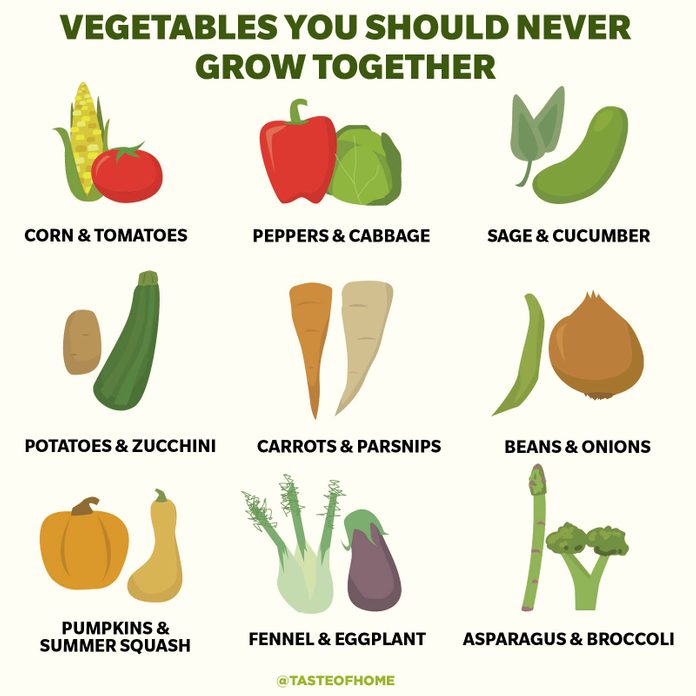
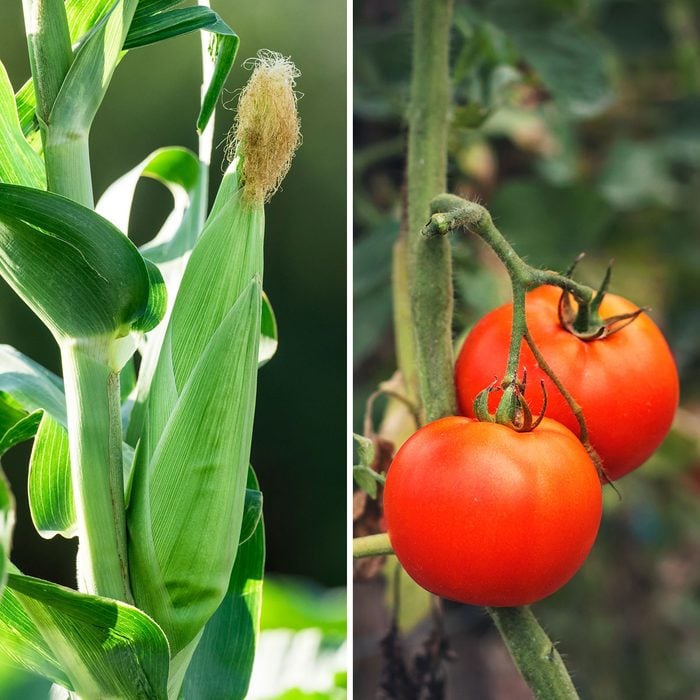
Corn and Tomatoes
Both tomatoes and corn are prone to worms and fungal blights, so an infestation in one area could spread to the other.
Companion Plantings: Plant tomatoes with basil or chives to improve flavor (but avoid dill). Carrots are another good choice. Pair corn with beans and pumpkins.
Don’t miss this list of secret ingredients to help your garden grow!

Peppers and Cabbage
Cabbage (and other vegetables in the brassica family, like broccoli and kohlrabi) will inhibit the growth of nightshade family vegetables, like peppers.
Companion Plantings: Peppers grow well with onions, tomatoes and eggplant. Plant cabbage with mint, cucumber or lettuce.
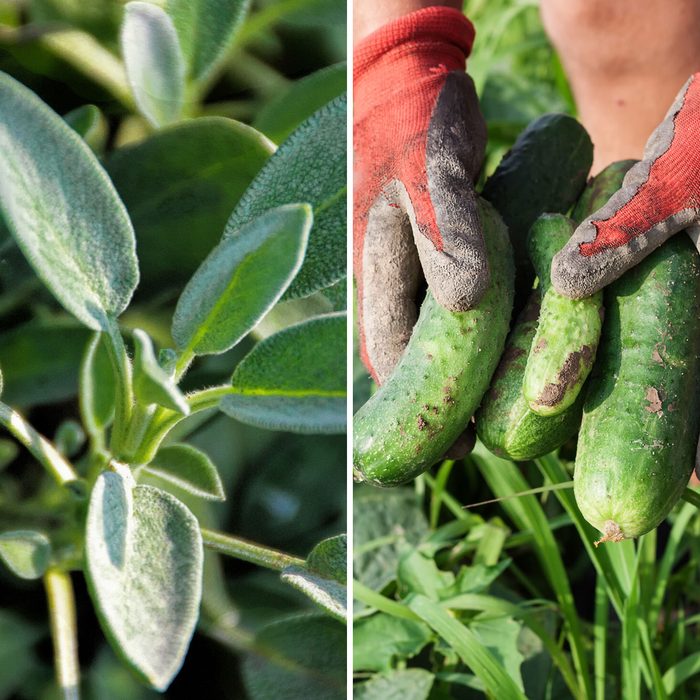
Sage and Cucumbers
Sage has a detrimental effect on cucumber plants, stunting growth and attracting harmful insects.
Companion Plantings: Cucumbers love growing alongside dill, peas and radishes. Plant sage with your rosemary, or with cabbage and carrots where it will deter insects that damage those crops.

Potatoes and Zucchini
Both zucchini and potatoes are rapid growers, but potatoes are voracious feeders. They’ll deplete available nutrients in the soil, leaving the zucchini to struggle.
Companion Plantings: Zucchini do great planted with corn, where the vines have a place to climb, and also with melons and beans. Plant potatoes near horseradish, beans or herbs like basil and thyme.

Carrots and Parsnips
Both are susceptible to the same diseases and pests like the carrot root fly, increasing the risk that you’ll lose both crops to an infestation.
Companion Plantings: Plant your carrots alongside rosemary, sage or chive to help deter those harmful insects. Parsnips grow well near tomatoes, peppers, onion and garlic.
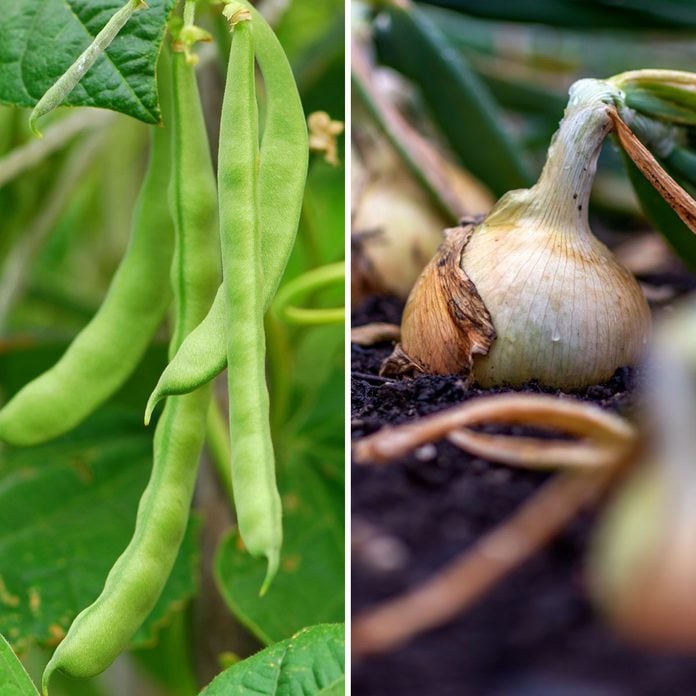
Beans and Onions
When planted close by, onions have been found to stunt the growth of beans and also peas.
Companion Plantings: Happy neighbors for onions include peppers, lettuce and carrots. Since beans fix nitrogen in the soil, vigorous growers like corn and potatoes will love growing alongside them.
See how to plant an edible landscape next year.
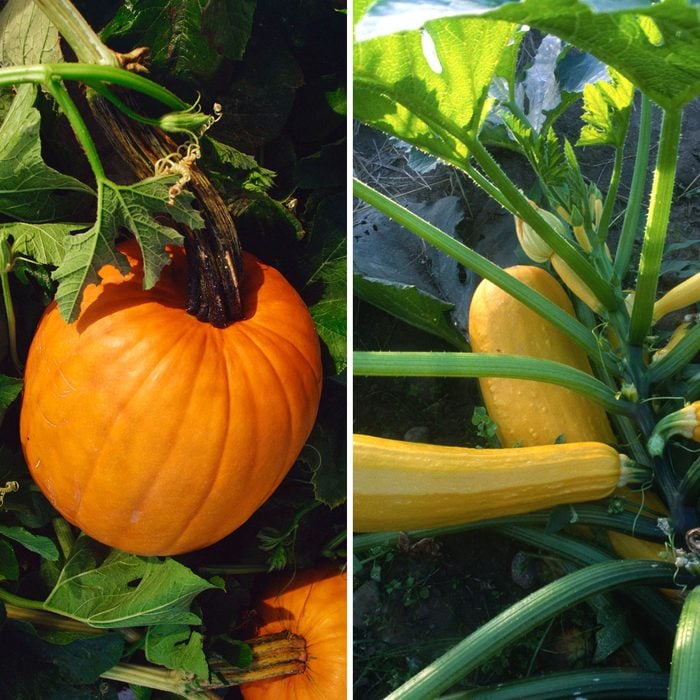
Pumpkins and Summer Squash
Their long vines will fight each other for space. Also, pumpkins and summer squash can easily cross-pollinate, leaving you with strange looking hybrid vegetables.
Companion Plantings: Pumpkins do well growing with melons and also twining up corn stalks. Grow your summer squash with edible nasturtiums to help control pests, or with beans and herbs.
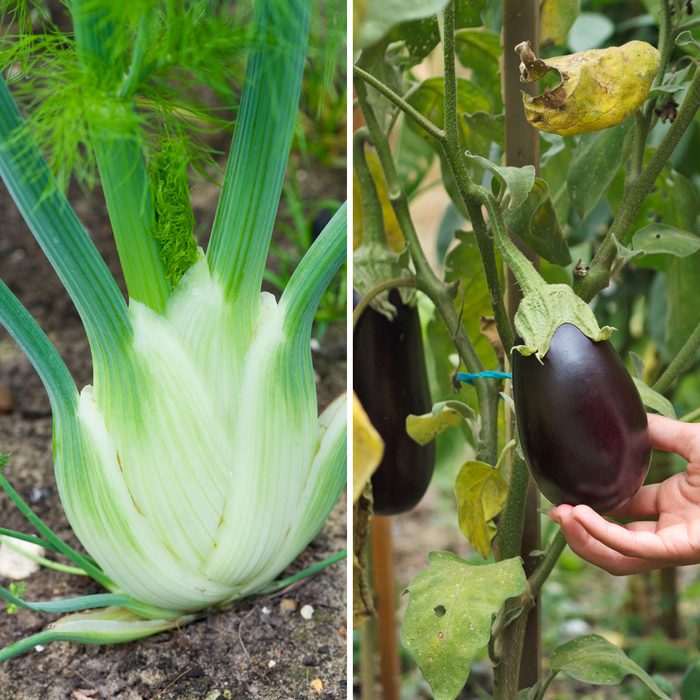
Fennel and Eggplant
Though fennel can draw harmful insects away from plants, it’s best kept out of the vegetable garden. It inhibits the growth of eggplant and many other veggies.
Companion Plantings: Eggplant needs nitrogen-rich soil, so plant it with beans—especially bush beans, which repel eggplant-damaging pests. Fennel unfortunately has few friends in the garden; it’s best grown away from your veggies and herbs in a separate patch or raised bed garden.
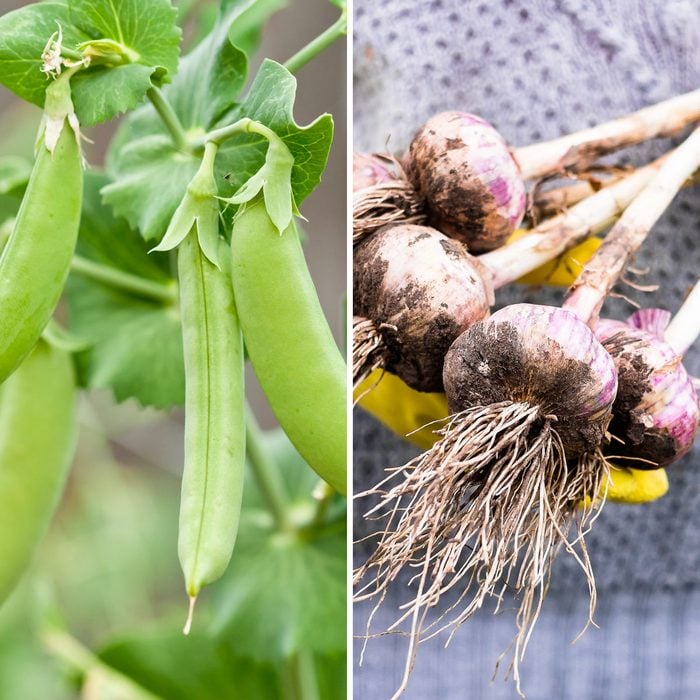
Peas and Garlic
If planted together, the sulfur compounds present in pungent garlic bulbs will stunt the growth of delicate pea plants.
Companion Plantings: Garlic will drive away many harmful pests—even critters like rabbits. Plant it near other veggies and herbs including tomatoes, eggplant and dill. You can plant your peas with beans, corn or cucumbers.
Before you plan a garden, consult this list of fast-growing vegetables.
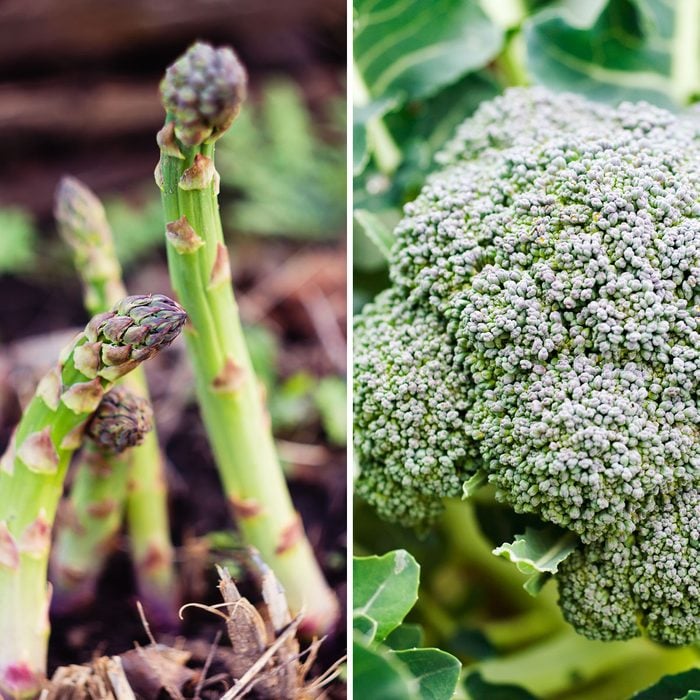
Asparagus and Broccoli
Both of these vegetables are considered “heavy feeders,” meaning they require a lot of nutrients and moisture. Planting them together would put them in competition and thwart their growth.
Companion Plantings: Vegetables that do well planted with broccoli include aromatic herbs, radishes, spinach and cucumbers. Asparagus is quite happy planted in its own space, or alongside herbs like dill, parsley and basil.
Looking for veggies that come back every year? Plant these perennial vegetables.
















